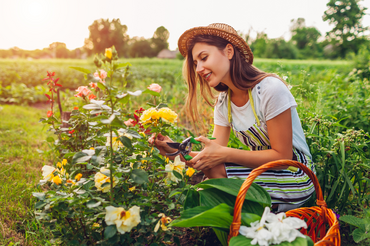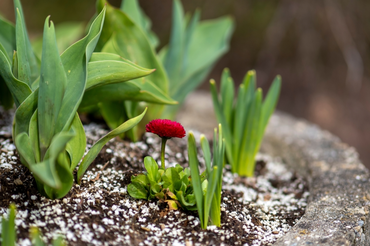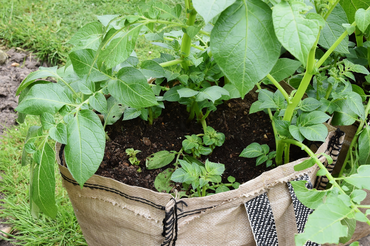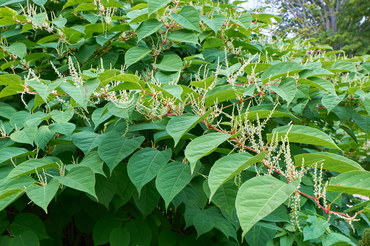
In June, the days are at their longest. Flowers bloom, bees buzz, and it’s time for the first harvests of fruits and vegetables. Here are our top 15 June gardening tips to keep your garden looking great.
Top 15 June gardening tips
-
Now that frosts are over, it’s time to plant summer bedding for instant colour in containers, borders, and hanging baskets. Water containers regularly and feed fortnightly with a high potash feed to boost flower production.
-
In the vegetable garden, you have to plant outrunners like French beans, courgettes, tomatoes, and cucumbers.
-
Keep sowing lettuce, radish, beetroot, and carrots for harvesting through summer. Flowering annuals like nasturtiums and the brilliantly-named Poached egg plant (Limnanthes douglasii) can also be sown outdoors now.
-
Feed tomato plants fortnightly with a high potash tomato feed. Support them with stakes as they grow, and pinch out the side shoots that appear at the junctions between leaf trusses and stems (no need to do this for bush tomatoes). Net strawberries to protect them from birds, and continue earthing up maincrop potatoes.
-
The first strawberries, peas, and early potatoes should all be ready for harvesting this month. Harvest garlic and onions once their leaves turn yellow.
-
Deadhead repeat-flowering roses and pick sweet peas to encourage the plants to produce more flowers.
-
Mow lawns weekly. In hot, dry periods, raise your mower blades to give a more extended cut and reduce the stress on the grass.
-
If you have space, let a small area of lawn grow long, and leave a few dandelions to flower for pollinators. Make a log pile for wildlife in a partly shaded spot, and keep bird baths topped up, especially in hot, dry weather.
-
Prune spring-flowering shrubs like Weigela, Forsythia, Ribes, and Philadelphus. Remove any dead or damaged shoots and cut back flowered shoots to vigorous side shoots. Cut out any spindly growth, and on very congested plants, cut back one in every three or four older stems to ground level.
-
Clip privet, box and yew hedges to keep them neat, but check first for nesting birds.
-
Cut back the leaves of spring bulbs once they have turned yellow. Lift tulip bulbs and store somewhere cold and dark for re-planting in autumn.
-
Keep topping off the garden weeds.
-
Watch out for fungal diseases like powdery mildew and remove any affected leaves. Rub aphids offshoots to prevent infestations.
-
Be water-wise. Install a rainwater butt and water plants in the evening or early morning to minimize water loss through evaporation. Water newly planted trees and shrubs regularly in dry periods.
-
Greenhouses can get very hot in summer, so open vents on hot days, and install blinds or put up netting to provide some shade. Damp down the floor in warm weather to increase humidity and reduce the risk of red spider mites.
Whether you’re planting or picking flowers, or just out enjoying the sunshine, we’ve got everything you need for your garden this summer. Visit us now to see what’s in store.




